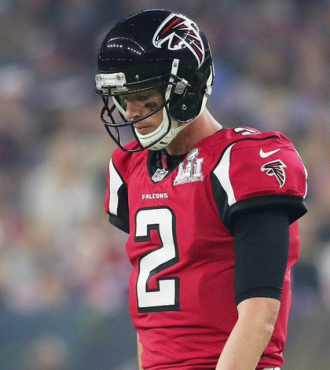8 Ways You are Underestimating the Importance of Betting Psychology
If you want to become a sharp, you need a method to use to plan your wagers, a money management system, and the right frame of mind to support a career in betting.
It is easy to focus most of your energy and attention on the technical aspects of sports betting and to put sports psychology on the backburner.

Sports betting and psychology go hand in hand whether you realize it or not. Read on to ensure you maximize your potential.
Even though sports betting psychology articles are usually categorized as an “advanced” resource in introductory betting guides. A lot of punters think, “How complicated can it be? If I can just get the technical stuff mastered, the rest will take care of itself. I can handle myself.”
But if you aren’t taking sports betting psychology as seriously as you are taking money management or betting strategies, you are making a mistake.
In fact, here are 8 ways you could be underestimating the importance of betting psychology.
- You are Missing Out on Cognitive Biases Which Could be Causing You to Make Logical Errors When Betting.
- The Gambler’s Fallacy.
- Dunning-Kruger Effect.
- Illusory Correlation.
- Illusion of Control.
- You may be allowing your emotions to call the shots.
- Without developing discipline and commitment, you might lack the follow-through to really make something of yourself as a punter.
- If you do not know yourself, you do not know what your strengths or weaknesses are.
- When you do not regularly question how you think, feel and make decisions, you risk self-deception.
- Backing a team or player because everyone else seems to think that is the right decision.
- Letting your emotions push you to make irrational wagers.
- Letting irrational doubts stop you from making smart bets.
- … and so on.
- Not challenging your current ways of thinking means you may not develop new analytical abilities or approaches to managing your psychology.
- Understanding betting psychology may also lend you insights into sports psychology.
- If you do not study sports psychology, you are not aware of how the psychology of other punters may influence their decisions.
Did you know that there are a ton of cognitive biases which affect the way that we think on a regular basis? Here are just a few examples:
This is where you think that something which hasn’t been happening often is more likely to happen in the future simply by default. A good example would be expecting that a losing streak is “bound to turn around soon.”
This cognitive bias causes people who are not very good at something (i.e. sports betting) to overestimate their abilities. It also can cause people with real talent to miss their own aptitude. Both can be disastrous for punters.
This is where you mistake correlation with causation. While looking at statistics, for example, you might notice that a horse ran well twice on a certain track. You could assume that the horse simply runs effectively on that track. But perhaps the track is not responsible. Maybe the horse had the same trainer for both runs, and now that trainer is gone. If it was the trainer who caused the horse to do so well, you could make a mistake assuming the horse will succeed on that same track now.
This is a cognitive bias that makes you think you are in control of a situation which you are not. Bettors are crippled by this illusion frequently.
If you do not study sports psychology, you can easily miss these types of biases at work in your own mind. Incidentally, you might also be oblivious to how they affect athletes, coaches, pundits, and fans.
Since you need to account for the psychologies of others when you are making your predictions, the more you understand how these biases skew perception (and decision-making), the better.
A surprising number of people are fairly oblivious to their emotions, even when those emotions are directing their actions.
Alexithymia

Really want to be a successful punter? Be prepared for a lot of discipline and commitment coming your way.
Maybe you haven’t heard of it, but psychologists refer to this as “alexithymia.” Is it common? Researches have estimated that around 1 in 10 people have it. Awareness is growing, but most people with it probably have no idea they are affected (or realize there’s a name for it).
Sports psychology gives you a chance to learn more about emotions and how they influence behavior.
You’ll pick up a lot watching athletes and coaches. You’ll also be able to observe the role of emotions when following sports news and looking up betting tips.
Hopefully, this’ll help you to learn a bit more about your own emotions too. You’ll be confronted with them while you are betting, particularly if you really want to win.
You probably know a bit about “going on tilt.” While this term is most referenced in the casino world, it also applies to sports bettors that lose control.
One of the characteristics of tilt is how “sneaky” it is when it starts. One of the reasons it’s so dangerous is that it tends to go unnoticed until it’s too late, even by the person experiencing it.
I have no data on this, but I would guess people with alexithymia are more likely to go on tilt more often for just this reason. They may not notice themselves getting worked up until they’re already on full tilt.
Whether you have alexithymia or not, your emotions make more decisions for you while you are betting than you realize. Ignoring betting psychology means ignoring those emotional factors which are driving you. That means giving up control when you don’t need to.
There are many different reasons why people fail to turn an interest in sports betting into a career, even if they are passionate about it at some point in time.
One of the most common reasons, however, is a lack of discipline and/or commitment. This can stop you from succeeding even if you have everything else you need for success lined up.
This is because even with world-class strategies on your side and an intuitive grasp for placing profitable bets, sports betting is challenging. It requires hard work every day, and that never stops no matter how long you have been doing it.
If you neglect to develop the discipline and commitment needed to keep up with that work day after day without burning out or losing interest, you may stop yourself from succeeding just as surely as if you had never found strategies that worked.
Another problem with ignoring betting psychology is that it may mean that you never take the time to get to know what you are capable of and what challenges you.
One of the keys to succeeding at sports betting and also not burning out its finding strategies that are a fit for you. The only way to do that is to familiarize yourself with your strengths and weaknesses.
If you do not do this, you might find a strategy which could feasibly work, but you may be going against the grain of your nature if you continue trying to force it to perform for you.
Not that this never works out, but it may entail putting yourself through a great deal more stress than necessary. It could also consume more time than is needed.
This also increases the likelihood that you will exhaust yourself long before you achieve success.
If on the other hand you do know what you excel at what you do not, you can search specifically for strategies which are aligned with your betting psychology. You should find it easier to pick up on these methods and develop expertise with them.
This should make for a more enjoyable and profitable betting experience all around. It also should put you in a good position to adjust your strategies for different scenarios in the future, providing you with an adaptable framework for success.
For even more of our great guides and tutorials, check out this link.

Do not despair. If this is you, you can get out of this as long as you don’t let yourself live on auto-pilot.
Have you ever noticed how many people simply react when something happens? There is simply action … reaction. They don’t appear to actually stop at any point and ask themselves what they are thinking or doing, and whether it really is rational or fits with their values.
In fact, a lot of people never even ask themselves what it is that they value, or why they value those things. They simply walk through life on automatic.
Hopefully, that doesn’t describe you, at least not in general. But nobody is 100% free from self-deception, and it is always smart to remind ourselves regularly that we can slip into patterns of automatic reactions.
As a punter, making decisions on automatic can lead to problems like:
The worst part is that you may have no idea you are doing it. That requires a certain amount of ongoing self-examination.
Slow down and think before you make betting decisions. Ask yourself what you think is driving you at that moment, and then ask yourself what may really be driving you underneath the surface.
Make sure that you are also in touch with your own values. Why do you bet on sports? What goals do you hope to achieve? Why do you hope to achieve them? Where do those motivations come from? Could you set higher aspirations?
The more of this type of self-reflection you engage in, the more you empower yourself to escape automated decision-making and start making choices which are derived from your highest potential.

And if there’s something we all want, it’s to improve ourselves as a whole.
Just as there may be unacknowledged assumptions underpinning your betting decisions, there are also probably patterns in the way that you think and process information which you may not be aware of.
Try to analyze not just sports, but also how you analyze sports. Doing this may show you limitations in your thinking which stop you from making connections or improving your techniques.
Challenge yourself to push beyond the boundaries of your current heuristics. Explore new ways of solving problems and analyzing information.
This may allow you to apply old strategies in new ways and also discover new strategies which you would never have developed otherwise.
It may also change the way that you approach problem-solving with regards to improving your betting psychology and growing as a person.
Again, this really is not possible until you start thinking about how you think now. Growth in this department rarely happens without conscious study and effort.
Sports psychology and betting psychology do have some things in common. Both concern performance under pressure. Both can tip the balance in terms of success and failure through deceptively subtle influence.
So just as observing athletes and their psychology may give you insights into your own, observing your own psychology may actually teach you something about how athletes’ psychology can impact them during matches.
This, in turn, may actually add some more strategic tools to your sports betting toolbox. The insights you glean could be enough to help you win with greater frequency. That is a practical benefit, one which for many punters is unexpected.
In general, you probably should not be spending most of your time thinking about what other people are doing, but it is something which can be helpful to at least take into account when betting.
It is easy to assume that other people know what they are talking about especially if they happen to be well-known pundits or successful punters.
As such, it is hard not to be influenced by their betting decisions.
Sometimes, what we learn from these people can be helpful in making smart wagers. But even intelligent, knowledgeable people can allow emotions and cognitive biases to distort their judgments.
If you can learn more about betting psychology, you can look through a more critical eye at other peoples’ bets. This can help you to wade through the dross to find the real gems among their tips and observations.
Enhancing your betting psychology knowledge also can tell you what the public is thinking when they make their bets. This too can help you to avoid common pitfalls and make smarter choices.
Conclusion: Betting Psychology is as Essential as it is Overlooked
Now you know a number of ways in which betting psychology can contribute to your success as a punter.
Even though sports bettors tend to overlook it in favor of spending more time on their strategies, it is every bit as vital and can enhance your success in a variety of ways.
Be sure to check out other betting psychology articles in our archives to learn more. The greater your self-awareness and the more you excel at critical thinking within a psychological framework, the greater your chances of profitability are.
Keep on Reading


